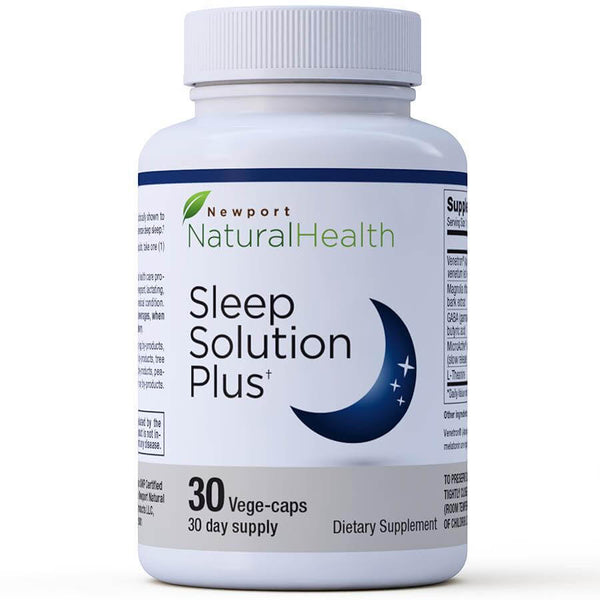Soothing Tips for Better Sleep

Demanding jobs; the stresses of parenting; overloaded schedules and to-do lists… Is it any wonder why as a society, we’re just plain tired?
And let’s not forget the burden that the COVID pandemic has placed on our sleep habits. Sleep issues have skyrocketed since the start of the pandemic. Fear of the virus, unemployment/financial concerns, loneliness, and depression have led to insomnia and disrupted sleep.
Unfortunately, the cost of inadequate and/or poor-quality sleep is much greater than just moodiness or exhaustion.
There are two types of restorative sleep: Rapid eye movement (REM) and non-REM. Both are important, but non-REM is where the most powerful rejuvenation happens:
- Blood pressure and heart rate decline
- Various hormones levels regulate (such as the stress hormone cortisol, and the hunger/appetite hormones leptin and ghrelin)
- Bones and tissues rebuild
- Bodily functions and systems (like the immune system) are restored
Effects Of Sleeplessness On Our Body
Knowing this, it’s obvious why health can suffer so greatly if you don’t get enough shuteye. Lack of sleep has been linked to:
- Diabetes
- Heart disease
- Weight gain
- High blood pressure
- Weakened immunity
- Mood disorders
Getting a Handle on Sleep
Sleep is one of your most important lines of defense against acute illness and chronic disease. But for many people, getting proper sleep is way easier said than done.
If insomnia or poor sleep is a problem for you, here are some tips.

Habits that Promote Better Sleep
When it comes to sleep, everything you do throughout the day and early evening hours can work for or against you. Here’s how to make sure your daily activities help to encourage, rather than hinder, healthier sleep patterns:
-
Keep a consistent sleep/wake schedule. Have one for the weekdays and a separate one for the weekends (when most people like to stay up later and/or sleep in). This helps regulate your body’s internal clock.
-
Exercise every day. One study of more than 2,600 people found that 150 minutes of moderate exercise per week improved sleep quality by 65%. There is a caveat though: Evening exercise may keep you up instead of helping you sleep. Morning or daytime workouts are the way to go.
- Several hours before you go to bed, avoid caffeine, alcohol, and tobacco. All of these interfere with sleep. Caffeinated products aren’t limited to coffee and some teas. Sodas and even chocolate contain it, so be aware of what you’re eating. And abstaining from alcohol may not be all that obvious considering many people like to have a glass of wine or a beer to “wind down” for the night. Yes, one drink may be soothing, but even a single alcoholic beverage can cause sleep to become fragmented.
Create an Environment Conducive to Sleep
The following ideas help to create a comfortable sleep environment:
-
Limit your exposure to light (TV, lamps, computers, etc.) as you approach your bedtime. When you wake up in the morning, expose yourself to bright light as soon as possible. This also helps with setting your internal clock.
-
Keep the temperature in your house cool overnight (around 68 degrees F).
- Cover or remove any electronics with bright lights, such as your alarm clock, nightlight, etc. If necessary, install blackout curtains and/or use an eye mask.
- Eliminate noise and other disturbances. You may want to use ear plugs, a white noise machine, or fan to drown out any outside commotion.
- Before retiring for the night, take a warm Epsom salt bath. This can reduce stress, eliminate toxins, and ease tension and muscle stiffness. Amaki Flowers and Salts Bath Soak contains Epsom salt as well as lavender, which has a calming and soothing effect.
Sleep-Enhancing Supplements
If these lifestyle changes don’t help enough, you may benefit from a natural sleep aid.
-
Melatonin. This hormone, which regulates your sleep/wake cycle, is naturally produced by the brain. There are two forms of melatonin supplements—fast or slow release. If your main concern is falling asleep once you lay down, the fast-acting form may work best for you. If your issue is staying asleep or frequent waking, slow release melatonin supplement may be a better option. Experiment to see what works best for you. You can also support your body’s own production of melatonin by taking a multivitamin every day. Many of the nutrients you’ll find in a multi—like vitamin B6, folic acid, and magnesium—are essential for the natural production of melatonin.
-
GABA. Gamma aminobutyric acid (GABA) is an amino acid that sends messages of calm from the brain to the rest of the body.
- L-theanine is an amino acid involved in the production of GABA. It helps soothe and quiet the mind so that you can more easily relax, and fall and stay asleep.
You can find all of these at your local health food store or pharmacy. Or, you can try a product specifically formulated for sleep. Newport Natural Health’s Sleep Solution Plus contains many of these compounds to help quiet your mind and gently lull you to sleep.
Finally, herbs like valerian, passionflower, lemon balm, and chamomile are known to promote a sense of relaxation. Sometimes, something as simple as sipping on tea made from calming herbs is all it takes to turn off the “brain chatter” and coax you into a sleepy state. Chamomile is one of the most popular of these herbs, and very easy to find. Whatever tea you choose, just make sure it is decaffeinated!
There’s so little we can control in this crazy, unpredictable world. But sleep habits are one area you have full control over. Improving them can go a long way to enhancing your heart, immune, mental, and overall physical health.
Reference
-
Loprinzi PD and Cardinal J. Association between objectively-measured physical activity and sleep, NHANES 2005-2006. Mental Health and Physical Activity. 2011 Dec;4(2):65-9.
Last Edit: July 30, 2021
















